Books Read 2008
Without further ado, these are the books I read in 2008.
Books I Read This Year (2008)
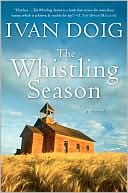
The Whistling Season
Ivan Doig
This book reminded me of simplistic coming-of-age stories like Penrod or Tom Sawyer. I kept waiting for something significant to happen, but it never did. It was a lightweight, mildly satisfying read - a very clean book, but not quite satisfying.
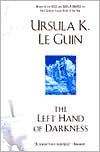
The Left Hand of Darkness
Ursula Le Guin
From my Amazon review: This is a strange book.
To my eyes, read for the first time in 2008, the book struggled to establish emotional resonance.
What I liked about it: the questions it raised about gender identity by creating an utterly new perspective, a world peopled by an androgynous species of individuals who can assume either sexual identity and do so only on a once-per-month basis by entering "kemmering". Each individual can sire or bear children interchangably. How this might impact a society is an interesting question, and one the author explores admirably.
What appealed less was the prevalence of political angling. The author spends a good deal of time describing the schemes of national officials vying for political advantage, disproportionate to the emotional impact. Frankly, these parts bored me, along with some lengthy descriptions of icy terrain. I had to skim through these parts.
The book felt like assigned reading, although it was freely chosen: it had the dry feel of a creation whose impact and relevance has already peaked. However, the real value to me was the inclusion of some profound and deep insights about the human condition, often woven in as dialogue from a character's lips or as musings of the narrator--sometimes making better philosophy than fiction. Overall, I don't begrudge the time I spent reading this book, and I admire what the author has done: creating a fictional race of others different from ourselves, and making them real enough so that we can see ourselves freshly through their eyes, is not an achievement to take for granted.

Babyproofing Your Marriage: How to Laugh More, Argue Less, and Communicate Better as Your Family Grows
Stacie Cockrell, Cathy O'Neill, Julia Stone
From my Amazon review: This is a needed book on an important topic, and I recently picked it up, hoping to gain insights as we prepare for the birth of our second child. It started out as a funny and well-written page-turner.
A couple of chapters in, though, it became problematic. The book really would have benefited from having a male co-author. It comes across as unbalanced and, occasionally, like a husband-bashing fest. Even my wife felt the same way - rather than taking sides with the authors, she thought it was pretty critical and unfair to men. After reading the Scorekeeping chapter, we just looked at each other and commented on how sad it sounded. It focuses too much on the staggering workload of childcare and not enough on the rewards. Some chapters paint so bleak a picture of the post-children landscape of a marriage that it might discourage undecided readers from even wanting kids. I'm very glad I didn't read this before we had our first child.
Efforts are made to focus the content on both genders. The book is divided into topical chapters, each of which contains a "What She Thinks" and a "What He Thinks" section. Those sections mostly do a good job of summarizing common thinking patterns and backing them up with anecdotal quotes from both men and women.
However, the women authors sometimes couldn't resist using their platform to take sides (and digs) when sharing the quotes from the men. These sections feel very unbalanced and, as a male reader, I felt frustrated and defensive at points. The authors belittle any major undertaking that a father might want to attempt outside the home, and insinuate that little or no weekend "free time" should be expected. They catalog male behaviors as "escape-planning" and "shortcut-seeking;" they cite examples of the "did-enough dad." One otherwise responsible father's desire to train for a marathon, for example, is viewed as an "elaborate escape plan" to avoid domestic responsibility. (The idea that a responsible man "shouldn't" have significant goals outside of work and home life is implicit.) In contrast, the female's biggest crime is typically to be overly "compulsive" about the domestic details of child-rearing. In other words, to be too good at parenting! (This authorial disingenuity is equivalent to telling a prospective employer that one's greatest weakness is a tendency to work too hard.)
In the most glaring case, they included a quote from a man talking about how "emasculating" it felt to him when he felt like the family's life had become a big domestic treadmill - like the "fun" part of their lives was over, he often felt like a "robotic working stiff," and he never felt like he was doing enough. "Oh, boo hoo," one of the women authors sardonically comments as they transition back from the quote. At that point I nearly put the book aside, certain that it was hopelessly crippled by a lack of objective editing. There is always a problem when grown-ups make it their business to tell other grown-ups what they should value. In belittling the man's story and emotions, the authors proved his point for him. I doubt that a book written by men about how women "should" feel or what they should value would go over very well, and the overall lack of restraint mars the book's effectiveness.
However, I pressed on, and finished, and I do think that the book overall is a helpful resource (even if it occasionally gives off the impression, or states outright, that "babyproofing" translates into giving up on your old life and on your dreams). A later chapter emphasizes the value of spouses giving each other time to recharge their batteries and stay happy, which was baffling in contrast to the browbeating in earlier sections.
Just read it with a grain of salt, take the good advice, and don't let the authors berate you or convince you that you can't find responsible ways for everyone in the family--adults and kids--to lead rewarding, happy lives.
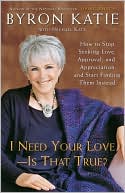
I Need Your Love - Is That True?: How to Stop Seeking Love, Approval, and Appreciation and Start Finding Them Instead
Byron Katie
Despite the unwieldy title, this book expanded effectively on the techniques first described in Loving What Is for investigating stressful thoughts. It's kind of like cognitive behavioral therapy, discovered and described by an unscientific layperson whose life was clearly transformed by it. Her perspectives are indeed challenging and startling and I can see positive change in my own life and mindset as a result of her writing. A relatively easy read, but totally worthwhile.

Amsterdam
Ian McEwan
A classic moral dilemma, complete with Ian McEwan's incisive writing style. A very good novel; not my favorite of his, but I'm glad I read it.
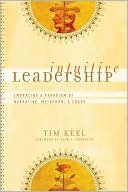
Intuitive Leadership: Embracing a Paradigm of Narrative, Metaphor, and Chaos
Tim Keel
This book could have been more aptly titled Intuitive Church Leadership, as it focuses strongly on, well, church leadership. It's also a thinly disguised manifesto on creative living, however, and even if you're more concerned with personal leadership--taking the helm of your own life and fostering organic growth and joy--you'll get a lot out of this book. It was a relatively intellectual read, and I found great challenge and reward in persisting through some of the wordier sections. It provides both glimpses of what the church--a church--could be, and illuminates truth about human nature, the futility of denying or ignoring uncertainty, and the value in staying open, being responsive rather than trying to impose structure and control. Worthwhile for spiritualists and agnostics, compulsive organizers and unstructured, creative people, the determined and the aimless alike.

Taming Your Gremlin: A Surprisingly Simple Method for Getting Out of Your Own Way
Rick Carson
One of those books with what seems at first to be a cheesy premise. However, there is so much to be gleaned from this short, startlingly refreshing read. As the title implies, it challenges the reader to start noticing negative self-talk--and to wonder where that self-talk iscoming from. So often the cruelest and most self-limiting things that are said to us come from the voices we allow to chatter in our own heads--"this isn't for me," "you're no good at this," "that person over there thinks you're an idiot," etc. How might our lives be different if we stopped listening to this voice and just noticed it instead? There are a few exercises and worksheets throughout, but primarily this short book provides some vastly freeing perspectives that you won't soon forget. Recommended!
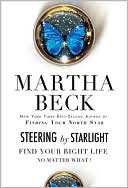
Steering by Starlight: Find Your Right Life, No Matter What
Martha Beck
An eye-opening, inspiring book that helps create an abundance mentality and encourages you to listen to, and go for, your dreams. The author is a professional life coach and brings a lot of interesting perspectives. It's also good to be reminded that, ultimately, while there are other people in life that it's desirous to please, ultimately it's important that you be pleased with yourself and not settle for living out someone else's values and script for your life.
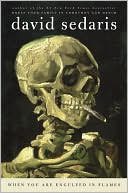
When You Are Engulfed in Flames
David Sedaris
I love David Sedaris, but some of these essays felt a little phoned-in--particularly the lengthy journal about his travels. However, I continue to eagerly await new books from this talented humorist.
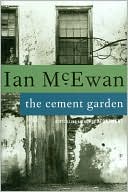
The Cement Garden
Ian McEwan
I didn't realize until I'd bought this book that it was from the late 1970s and is one of the author's first. It's a tale of dysfunction and restless adolescence, and social taboos as a group of children must bury their mother--which they do, without telling anyone, and go on living in their rural house. McEwan's later works are more sophisticated, but I enjoyed reading this early novel from him.

The Female Brain
Louann Brizendine
Fascinating! I learned a lot about the different kind of hormones that affect women throughout their lives. For example, the scent from the top of an infant's head actually creates a significant, measurable hormonal response in a woman's brain to trigger a desire to reproduce. Also, many stereotypes were debunked (women cheat as often as men, etc., are hardwired for social bonding to the extent that it can feel like a matter of life and death, etc.) Very well-written and interesting even as it doesn't shy away from covering pharmaceutical and medical terminology. I felt that what I learned would help me understand Audrey's future development as well.
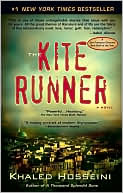
The Kite Runner
Khaled Hosseini
I may have been late in the game to read this moving book. It was definitely unforgettable, and while being grueling to read at times, definitely makes the world of Afghanistan and the realities of life under the Taliban feel real to the reader. While there were a few occasions where reading the book felt like "work," it was definitely an excellent novel and definitely worth the effort. I look forward to future efforts by this talented author.

MCTS Self-Paced Training Kit (Exam 70-536): Microsoft .NET Framework 2.0 Application Development Foundation
Tony Northrup
This is not really the kind of book that one typically reads through, although I did--all 900 pages--in preparation for a technical certification. It was good to gain exposure to the breath of the .NET framework, even the aspects of it that I typically don't interact with very much. My new job pays for both the books and the tests, so I'm taking advantage, both for the additional resume fodder and for the exposure and confidence in general. (Yes, I passed.)

The Issue at Hand: Essays on Buddhist Mindfulness Practice
Gil Fronsdal
A great set of readable essays on Buddhism, virtue, suffering, mindfulness, and meditation. Very accessible and inspiring.
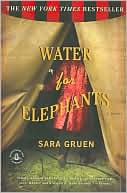
Water for Elephants
Sara Gruen
A touching and well-written novel set in the days of the traveling circus. Solid storytelling and colorful characterization make this a very enjoyable read (one which I still associate with standing in a three-hour iPhone release line).
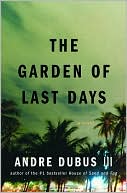
The Garden of Last Days
Andre Dubus III
A novel by the author of House of Sand and Fog, I bought this based on a recommendation from a magazine. It has compelling characters and, while one of the primary settings is a strip club, does a good job of not resorting to stereotypes about strippers or their clientele. One of the parallel storylines is about a radical Muslim so, amongst the three main characters, we get to see the same scenery through the lenses of religious extremism, economic pragmatism, and simple loneliness. Well-written and compelling.
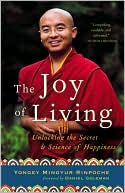
The Joy of Living: Unlocking the Secret and Science of Happiness
Yongey Mingyur Rinpoche
An overview of meditation, written by a Buddhist monk, but integrating perspectives from scientific research. It presents experimental and measurable verification of the benefits of meditation as reported by its practitioners: calming activity in stress-affected areas of the brain, etc. It has a tone that's very reassuring as the author describes his own lengthy struggles and failures to become effective at meditation and in his life. After learning how to cultivate mindfulness and thus transcend fear, he has really become an amazing force and presence in the world, through the natural humility that can come from seeing clearly. A little longer than it needed to be, but recommended nonetheless.
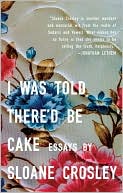
I Was Told There'd Be Cake
Sloane Crosley
A lightweight collection of humorous essays that I found to be hit or miss. I did finish it since it was such a quick read, but this one got donated to the public library.
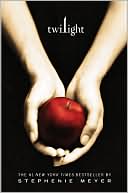
Twilight
Stephanie Meyer
I had to read this to see what the fuss was all about. When I picked it up, it didn't have quite as many strong chick-lit associations as it does today, thanks to the teen-friendly movie (which I did enjoy more than I thought I would). I never went on to read the sequels, but I found myself reasonably entertained by this story (most of us know what it is, so I won't bother explicating). Good, lightweight fun.
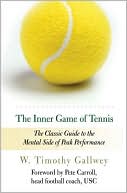
The Inner Game of Tennis: The Classic Guide to the Mental Side of Peak Performance
W. Timothy Gallwey
I don't play tennis, but I bought this book because it's regarded as an important personal development book and its insights can be applied to any pursuit. It emphasizes the power of the subconscious and natural self vs. the trying-too-hard, intellectualizing, story-telling conscious self. It also includes techniques for noticing and paying attention to things, letting yourself unconsciously improve just like a small child does (without having to think so hard about it and without beating oneself up). Worthwhile and a fairly short read.
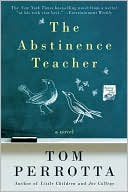
The Abstinence Teacher
Tom Perotta
From my disappointed Amazon review: I picked up this book with anticipation. Having seen and really appreciated the film version of the author's novel Little Children, I expected a complex drama with interesting characters and lots of surprises.
Most of the book wasn't . . . bad. One thing that really stood out to me was how mundane many of the situations were. It felt like the author was just trying to pad word counts--including routine transaction dialog as one main character picked up his Saturn at the oil change place, for example. The "Christians" in the book were strawmen, caricatures. I have enough familiarity with evangelical culture to know that the characters in this book that are on the Christian side of the fence are exaggerated. The author makes them obnoxious and small-minded enough that they are not sympathetic at all.
Perhaps the payoff here is that the two main characters represent both sides of an intractable moral debate; each side is explained and humanized. In the end, however, one party turns out to be far more responsible and likable than the other, giving a sense that the author is using his biases to direct and manipulate the reader.
Also, I found the ending to be anticlimactic and depressing.
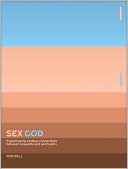
Sex God: Exploring the Endless Connections between Sexuality and Spirituality
Rob Bell
This book is simply the best rendition of Christian perspective on sexuality that I've ever encountered. Especially when contrasted with missing-the-point books like Every M an's Battle, this book gets at the heart of things: how sexual addiction, like any other, is really just a symptom of something deeper (what emotional need are you trying to meet?) Rather than resorting to dos and don'ts, or framing sexuality as a giant problem, this book does a remarkable job of making you think about a familiar topic in wholly new ways--a great and unusual achievement for a Christian book. I recommend this for anyone no matter what path of spirituality, if any, they're on: it's just plain good.
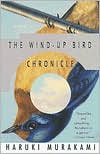
The Wind-Up Bird Chronicle
Haruki Murakami
An amazing work of art. I am not an English major nor the most deep-thinking person by any means, so there are probably multiple layers of symbolism here that eluded my detection. Nevertheless, the author creates an amazingly unique, original, and introverted experience. Elements like an anonymous woman calling on the phone, a missing housecat, and an estranged wife create the texture of the protagonist's life, instilling an uneasy sense of time standing still. And that's just the beginning . . . this book achieves a remarkable and dreamlike vibe and maintains it throughout, while unveiling more and more layers of a very satisfying onion. I hope I find time to read this book again before I die.
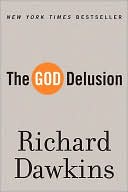
The God Delusion
Richard Dawkins
Wow, Richard Dawkins doesn't pull any punches! This book very entertainingly (and somewhat persuasively) lays out his case against the existence of God (as defined by major world religions). In a sense it's as much a manifesto against unverifiable truth claims as it is an assault on any given religion. As adamant and dogmatic as Dawkins can be, I admire him for stating his views so plainly and for writing such an entertaining and interesting book.
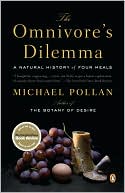
The Omnivore's Dilemma: A Natural History of Four Meals
Michael Pollan
For a nonfiction treatise of America's industrialized food production system, this book was a page-turner! The author does a great job of getting the reader to think about things long taken for granted: what we eat, where it comes from, and how economics and other nonintuitive factors have disturbingly influenced our eating habits and our overall health. All of his points ultimately tie back to the interconnectedness of all things, but on a personal level, it made me want to become much more aware of how I fuel my body, and prompted a greater familiarity with organic products. Recommended.
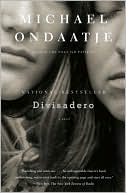
Divisadero
Michael Ondaatje
A literate and--I might say artsy--novel from the author of The English Patient. As with many literate novels, I enjoyed the experience of reading it, but at the end I couldn't tell you the point or discern why it was constructed the way it was. Perhaps an English major could have. Overall, I thought I liked it and it contained poignant, well-written characters and scenes, but when it ended I was disappointed to realize that certain story arcs weren't going to be revisited. Good vacation reading, nonetheless.
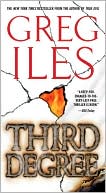
Third Degree
Greg Iles
I am not typically a consumer of mass-market paperback thrillers. However, I've enjoyed books by Greg Iles before, so I thought I'd try this one. It was one of those guilty-pleasure summer reads; not a work of literature by any means, but an enjoyable page-turner about a guiltily unfaithful wife and her husband who goes crazy. I was hooked until the end and wasn't disappointed.
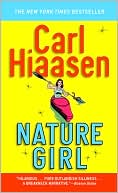
Nature Girl
Carl Hiaasen
I enjoyed the sarcastic wit and the drily funny prose throughout this novel. I'd read the first chapters when it was available in hardcover, and I'd always intended to pick it up; I finally found it in paperback and couldn't resist. Overall, I tend to enjoy characterization more than plot, and because this book spends the first few chapters hilariously setting up the characters--an obnoxious, lazy telemarketer and the women he disturbs during dinner, who makes it her quest to track him down and teach him a lesson--I enjoyed the first half more than the last half, which ties all the storylines together in an obligatory denouement. Still, even a book that gets me to like its first half has achieved something. Lightweight but enjoyable.
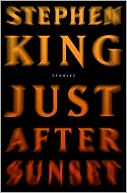
Just After Sunset
Stephen King
I haven't enjoyed Stephen King in this way for a long time; reading this collection of stories brought back memories of my (and his) heyday. Some of his recent novels have felt forced or unreadable to me, but this was a creative set of gripping, inspired stories. I'm not a horror afficiando by any means, but I've always admired King's artistic creativity and I wasn't disappointed at all by this collection.
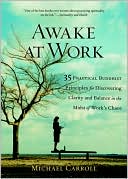
Awake at Work: 35 Practical Buddhist Principles for Discovering Clarity and Balance in the Midst of Work's Chaos
Michael Carroll
At first this book seemed like it might have an unhelpful format--a collection of one-line slogans with descriptive text for each one. As I progressed, however, I found it really helpful. Insights that at first seem counterintuitive--for example, "Welcome the Tyrant"--give you concrete and creative perspectives to try on at work. It helps the reader migrate from seeing work as a sequence of stress and frustration to a crucible of personal growth, full of things to notice, superimposing a new sort of meaning onto everything. I definitely recommend and would read again.
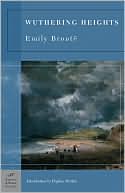
Wuthering Heights
Emily Bronte
The first complete novel that I read using my iPhone's eBook reader--surely a markedly unanticipated mode of reading, and perhaps incongruous with the lonely moors that comprise the backdrop of this classic English novel. I really enjoyed the read, however, and found the author's prose to be very well constructed. As with all classics, there was a note of "this must get awesome" in the back of my mind as I read, but it held up rather well and I enjoyed learning about "Heathcliff" (filling in some pop culture references that I'd just never gotten). I'm glad I read it.
So, that's it. See also previous years' lists - Books Read 2003 and Books Read 2004 and Books Read 2005 and Books Read 2006 and Books Read 2007.
Books I Read This Year (2008)

The Whistling Season
Ivan Doig
This book reminded me of simplistic coming-of-age stories like Penrod or Tom Sawyer. I kept waiting for something significant to happen, but it never did. It was a lightweight, mildly satisfying read - a very clean book, but not quite satisfying.

The Left Hand of Darkness
Ursula Le Guin
From my Amazon review: This is a strange book.
To my eyes, read for the first time in 2008, the book struggled to establish emotional resonance.
What I liked about it: the questions it raised about gender identity by creating an utterly new perspective, a world peopled by an androgynous species of individuals who can assume either sexual identity and do so only on a once-per-month basis by entering "kemmering". Each individual can sire or bear children interchangably. How this might impact a society is an interesting question, and one the author explores admirably.
What appealed less was the prevalence of political angling. The author spends a good deal of time describing the schemes of national officials vying for political advantage, disproportionate to the emotional impact. Frankly, these parts bored me, along with some lengthy descriptions of icy terrain. I had to skim through these parts.
The book felt like assigned reading, although it was freely chosen: it had the dry feel of a creation whose impact and relevance has already peaked. However, the real value to me was the inclusion of some profound and deep insights about the human condition, often woven in as dialogue from a character's lips or as musings of the narrator--sometimes making better philosophy than fiction. Overall, I don't begrudge the time I spent reading this book, and I admire what the author has done: creating a fictional race of others different from ourselves, and making them real enough so that we can see ourselves freshly through their eyes, is not an achievement to take for granted.

Babyproofing Your Marriage: How to Laugh More, Argue Less, and Communicate Better as Your Family Grows
Stacie Cockrell, Cathy O'Neill, Julia Stone
From my Amazon review: This is a needed book on an important topic, and I recently picked it up, hoping to gain insights as we prepare for the birth of our second child. It started out as a funny and well-written page-turner.
A couple of chapters in, though, it became problematic. The book really would have benefited from having a male co-author. It comes across as unbalanced and, occasionally, like a husband-bashing fest. Even my wife felt the same way - rather than taking sides with the authors, she thought it was pretty critical and unfair to men. After reading the Scorekeeping chapter, we just looked at each other and commented on how sad it sounded. It focuses too much on the staggering workload of childcare and not enough on the rewards. Some chapters paint so bleak a picture of the post-children landscape of a marriage that it might discourage undecided readers from even wanting kids. I'm very glad I didn't read this before we had our first child.
Efforts are made to focus the content on both genders. The book is divided into topical chapters, each of which contains a "What She Thinks" and a "What He Thinks" section. Those sections mostly do a good job of summarizing common thinking patterns and backing them up with anecdotal quotes from both men and women.
However, the women authors sometimes couldn't resist using their platform to take sides (and digs) when sharing the quotes from the men. These sections feel very unbalanced and, as a male reader, I felt frustrated and defensive at points. The authors belittle any major undertaking that a father might want to attempt outside the home, and insinuate that little or no weekend "free time" should be expected. They catalog male behaviors as "escape-planning" and "shortcut-seeking;" they cite examples of the "did-enough dad." One otherwise responsible father's desire to train for a marathon, for example, is viewed as an "elaborate escape plan" to avoid domestic responsibility. (The idea that a responsible man "shouldn't" have significant goals outside of work and home life is implicit.) In contrast, the female's biggest crime is typically to be overly "compulsive" about the domestic details of child-rearing. In other words, to be too good at parenting! (This authorial disingenuity is equivalent to telling a prospective employer that one's greatest weakness is a tendency to work too hard.)
In the most glaring case, they included a quote from a man talking about how "emasculating" it felt to him when he felt like the family's life had become a big domestic treadmill - like the "fun" part of their lives was over, he often felt like a "robotic working stiff," and he never felt like he was doing enough. "Oh, boo hoo," one of the women authors sardonically comments as they transition back from the quote. At that point I nearly put the book aside, certain that it was hopelessly crippled by a lack of objective editing. There is always a problem when grown-ups make it their business to tell other grown-ups what they should value. In belittling the man's story and emotions, the authors proved his point for him. I doubt that a book written by men about how women "should" feel or what they should value would go over very well, and the overall lack of restraint mars the book's effectiveness.
However, I pressed on, and finished, and I do think that the book overall is a helpful resource (even if it occasionally gives off the impression, or states outright, that "babyproofing" translates into giving up on your old life and on your dreams). A later chapter emphasizes the value of spouses giving each other time to recharge their batteries and stay happy, which was baffling in contrast to the browbeating in earlier sections.
Just read it with a grain of salt, take the good advice, and don't let the authors berate you or convince you that you can't find responsible ways for everyone in the family--adults and kids--to lead rewarding, happy lives.

I Need Your Love - Is That True?: How to Stop Seeking Love, Approval, and Appreciation and Start Finding Them Instead
Byron Katie
Despite the unwieldy title, this book expanded effectively on the techniques first described in Loving What Is for investigating stressful thoughts. It's kind of like cognitive behavioral therapy, discovered and described by an unscientific layperson whose life was clearly transformed by it. Her perspectives are indeed challenging and startling and I can see positive change in my own life and mindset as a result of her writing. A relatively easy read, but totally worthwhile.

Amsterdam
Ian McEwan
A classic moral dilemma, complete with Ian McEwan's incisive writing style. A very good novel; not my favorite of his, but I'm glad I read it.

Intuitive Leadership: Embracing a Paradigm of Narrative, Metaphor, and Chaos
Tim Keel
This book could have been more aptly titled Intuitive Church Leadership, as it focuses strongly on, well, church leadership. It's also a thinly disguised manifesto on creative living, however, and even if you're more concerned with personal leadership--taking the helm of your own life and fostering organic growth and joy--you'll get a lot out of this book. It was a relatively intellectual read, and I found great challenge and reward in persisting through some of the wordier sections. It provides both glimpses of what the church--a church--could be, and illuminates truth about human nature, the futility of denying or ignoring uncertainty, and the value in staying open, being responsive rather than trying to impose structure and control. Worthwhile for spiritualists and agnostics, compulsive organizers and unstructured, creative people, the determined and the aimless alike.

Taming Your Gremlin: A Surprisingly Simple Method for Getting Out of Your Own Way
Rick Carson
One of those books with what seems at first to be a cheesy premise. However, there is so much to be gleaned from this short, startlingly refreshing read. As the title implies, it challenges the reader to start noticing negative self-talk--and to wonder where that self-talk iscoming from. So often the cruelest and most self-limiting things that are said to us come from the voices we allow to chatter in our own heads--"this isn't for me," "you're no good at this," "that person over there thinks you're an idiot," etc. How might our lives be different if we stopped listening to this voice and just noticed it instead? There are a few exercises and worksheets throughout, but primarily this short book provides some vastly freeing perspectives that you won't soon forget. Recommended!

Steering by Starlight: Find Your Right Life, No Matter What
Martha Beck
An eye-opening, inspiring book that helps create an abundance mentality and encourages you to listen to, and go for, your dreams. The author is a professional life coach and brings a lot of interesting perspectives. It's also good to be reminded that, ultimately, while there are other people in life that it's desirous to please, ultimately it's important that you be pleased with yourself and not settle for living out someone else's values and script for your life.

When You Are Engulfed in Flames
David Sedaris
I love David Sedaris, but some of these essays felt a little phoned-in--particularly the lengthy journal about his travels. However, I continue to eagerly await new books from this talented humorist.

The Cement Garden
Ian McEwan
I didn't realize until I'd bought this book that it was from the late 1970s and is one of the author's first. It's a tale of dysfunction and restless adolescence, and social taboos as a group of children must bury their mother--which they do, without telling anyone, and go on living in their rural house. McEwan's later works are more sophisticated, but I enjoyed reading this early novel from him.

The Female Brain
Louann Brizendine
Fascinating! I learned a lot about the different kind of hormones that affect women throughout their lives. For example, the scent from the top of an infant's head actually creates a significant, measurable hormonal response in a woman's brain to trigger a desire to reproduce. Also, many stereotypes were debunked (women cheat as often as men, etc., are hardwired for social bonding to the extent that it can feel like a matter of life and death, etc.) Very well-written and interesting even as it doesn't shy away from covering pharmaceutical and medical terminology. I felt that what I learned would help me understand Audrey's future development as well.

The Kite Runner
Khaled Hosseini
I may have been late in the game to read this moving book. It was definitely unforgettable, and while being grueling to read at times, definitely makes the world of Afghanistan and the realities of life under the Taliban feel real to the reader. While there were a few occasions where reading the book felt like "work," it was definitely an excellent novel and definitely worth the effort. I look forward to future efforts by this talented author.

MCTS Self-Paced Training Kit (Exam 70-536): Microsoft .NET Framework 2.0 Application Development Foundation
Tony Northrup
This is not really the kind of book that one typically reads through, although I did--all 900 pages--in preparation for a technical certification. It was good to gain exposure to the breath of the .NET framework, even the aspects of it that I typically don't interact with very much. My new job pays for both the books and the tests, so I'm taking advantage, both for the additional resume fodder and for the exposure and confidence in general. (Yes, I passed.)

The Issue at Hand: Essays on Buddhist Mindfulness Practice
Gil Fronsdal
A great set of readable essays on Buddhism, virtue, suffering, mindfulness, and meditation. Very accessible and inspiring.

Water for Elephants
Sara Gruen
A touching and well-written novel set in the days of the traveling circus. Solid storytelling and colorful characterization make this a very enjoyable read (one which I still associate with standing in a three-hour iPhone release line).

The Garden of Last Days
Andre Dubus III
A novel by the author of House of Sand and Fog, I bought this based on a recommendation from a magazine. It has compelling characters and, while one of the primary settings is a strip club, does a good job of not resorting to stereotypes about strippers or their clientele. One of the parallel storylines is about a radical Muslim so, amongst the three main characters, we get to see the same scenery through the lenses of religious extremism, economic pragmatism, and simple loneliness. Well-written and compelling.

The Joy of Living: Unlocking the Secret and Science of Happiness
Yongey Mingyur Rinpoche
An overview of meditation, written by a Buddhist monk, but integrating perspectives from scientific research. It presents experimental and measurable verification of the benefits of meditation as reported by its practitioners: calming activity in stress-affected areas of the brain, etc. It has a tone that's very reassuring as the author describes his own lengthy struggles and failures to become effective at meditation and in his life. After learning how to cultivate mindfulness and thus transcend fear, he has really become an amazing force and presence in the world, through the natural humility that can come from seeing clearly. A little longer than it needed to be, but recommended nonetheless.

I Was Told There'd Be Cake
Sloane Crosley
A lightweight collection of humorous essays that I found to be hit or miss. I did finish it since it was such a quick read, but this one got donated to the public library.

Twilight
Stephanie Meyer
I had to read this to see what the fuss was all about. When I picked it up, it didn't have quite as many strong chick-lit associations as it does today, thanks to the teen-friendly movie (which I did enjoy more than I thought I would). I never went on to read the sequels, but I found myself reasonably entertained by this story (most of us know what it is, so I won't bother explicating). Good, lightweight fun.

The Inner Game of Tennis: The Classic Guide to the Mental Side of Peak Performance
W. Timothy Gallwey
I don't play tennis, but I bought this book because it's regarded as an important personal development book and its insights can be applied to any pursuit. It emphasizes the power of the subconscious and natural self vs. the trying-too-hard, intellectualizing, story-telling conscious self. It also includes techniques for noticing and paying attention to things, letting yourself unconsciously improve just like a small child does (without having to think so hard about it and without beating oneself up). Worthwhile and a fairly short read.

The Abstinence Teacher
Tom Perotta
From my disappointed Amazon review: I picked up this book with anticipation. Having seen and really appreciated the film version of the author's novel Little Children, I expected a complex drama with interesting characters and lots of surprises.
Most of the book wasn't . . . bad. One thing that really stood out to me was how mundane many of the situations were. It felt like the author was just trying to pad word counts--including routine transaction dialog as one main character picked up his Saturn at the oil change place, for example. The "Christians" in the book were strawmen, caricatures. I have enough familiarity with evangelical culture to know that the characters in this book that are on the Christian side of the fence are exaggerated. The author makes them obnoxious and small-minded enough that they are not sympathetic at all.
Perhaps the payoff here is that the two main characters represent both sides of an intractable moral debate; each side is explained and humanized. In the end, however, one party turns out to be far more responsible and likable than the other, giving a sense that the author is using his biases to direct and manipulate the reader.
Also, I found the ending to be anticlimactic and depressing.

Sex God: Exploring the Endless Connections between Sexuality and Spirituality
Rob Bell
This book is simply the best rendition of Christian perspective on sexuality that I've ever encountered. Especially when contrasted with missing-the-point books like Every M an's Battle, this book gets at the heart of things: how sexual addiction, like any other, is really just a symptom of something deeper (what emotional need are you trying to meet?) Rather than resorting to dos and don'ts, or framing sexuality as a giant problem, this book does a remarkable job of making you think about a familiar topic in wholly new ways--a great and unusual achievement for a Christian book. I recommend this for anyone no matter what path of spirituality, if any, they're on: it's just plain good.

The Wind-Up Bird Chronicle
Haruki Murakami
An amazing work of art. I am not an English major nor the most deep-thinking person by any means, so there are probably multiple layers of symbolism here that eluded my detection. Nevertheless, the author creates an amazingly unique, original, and introverted experience. Elements like an anonymous woman calling on the phone, a missing housecat, and an estranged wife create the texture of the protagonist's life, instilling an uneasy sense of time standing still. And that's just the beginning . . . this book achieves a remarkable and dreamlike vibe and maintains it throughout, while unveiling more and more layers of a very satisfying onion. I hope I find time to read this book again before I die.

The God Delusion
Richard Dawkins
Wow, Richard Dawkins doesn't pull any punches! This book very entertainingly (and somewhat persuasively) lays out his case against the existence of God (as defined by major world religions). In a sense it's as much a manifesto against unverifiable truth claims as it is an assault on any given religion. As adamant and dogmatic as Dawkins can be, I admire him for stating his views so plainly and for writing such an entertaining and interesting book.

The Omnivore's Dilemma: A Natural History of Four Meals
Michael Pollan
For a nonfiction treatise of America's industrialized food production system, this book was a page-turner! The author does a great job of getting the reader to think about things long taken for granted: what we eat, where it comes from, and how economics and other nonintuitive factors have disturbingly influenced our eating habits and our overall health. All of his points ultimately tie back to the interconnectedness of all things, but on a personal level, it made me want to become much more aware of how I fuel my body, and prompted a greater familiarity with organic products. Recommended.

Divisadero
Michael Ondaatje
A literate and--I might say artsy--novel from the author of The English Patient. As with many literate novels, I enjoyed the experience of reading it, but at the end I couldn't tell you the point or discern why it was constructed the way it was. Perhaps an English major could have. Overall, I thought I liked it and it contained poignant, well-written characters and scenes, but when it ended I was disappointed to realize that certain story arcs weren't going to be revisited. Good vacation reading, nonetheless.

Third Degree
Greg Iles
I am not typically a consumer of mass-market paperback thrillers. However, I've enjoyed books by Greg Iles before, so I thought I'd try this one. It was one of those guilty-pleasure summer reads; not a work of literature by any means, but an enjoyable page-turner about a guiltily unfaithful wife and her husband who goes crazy. I was hooked until the end and wasn't disappointed.

Nature Girl
Carl Hiaasen
I enjoyed the sarcastic wit and the drily funny prose throughout this novel. I'd read the first chapters when it was available in hardcover, and I'd always intended to pick it up; I finally found it in paperback and couldn't resist. Overall, I tend to enjoy characterization more than plot, and because this book spends the first few chapters hilariously setting up the characters--an obnoxious, lazy telemarketer and the women he disturbs during dinner, who makes it her quest to track him down and teach him a lesson--I enjoyed the first half more than the last half, which ties all the storylines together in an obligatory denouement. Still, even a book that gets me to like its first half has achieved something. Lightweight but enjoyable.

Just After Sunset
Stephen King
I haven't enjoyed Stephen King in this way for a long time; reading this collection of stories brought back memories of my (and his) heyday. Some of his recent novels have felt forced or unreadable to me, but this was a creative set of gripping, inspired stories. I'm not a horror afficiando by any means, but I've always admired King's artistic creativity and I wasn't disappointed at all by this collection.

Awake at Work: 35 Practical Buddhist Principles for Discovering Clarity and Balance in the Midst of Work's Chaos
Michael Carroll
At first this book seemed like it might have an unhelpful format--a collection of one-line slogans with descriptive text for each one. As I progressed, however, I found it really helpful. Insights that at first seem counterintuitive--for example, "Welcome the Tyrant"--give you concrete and creative perspectives to try on at work. It helps the reader migrate from seeing work as a sequence of stress and frustration to a crucible of personal growth, full of things to notice, superimposing a new sort of meaning onto everything. I definitely recommend and would read again.

Wuthering Heights
Emily Bronte
The first complete novel that I read using my iPhone's eBook reader--surely a markedly unanticipated mode of reading, and perhaps incongruous with the lonely moors that comprise the backdrop of this classic English novel. I really enjoyed the read, however, and found the author's prose to be very well constructed. As with all classics, there was a note of "this must get awesome" in the back of my mind as I read, but it held up rather well and I enjoyed learning about "Heathcliff" (filling in some pop culture references that I'd just never gotten). I'm glad I read it.
So, that's it. See also previous years' lists - Books Read 2003 and Books Read 2004 and Books Read 2005 and Books Read 2006 and Books Read 2007.